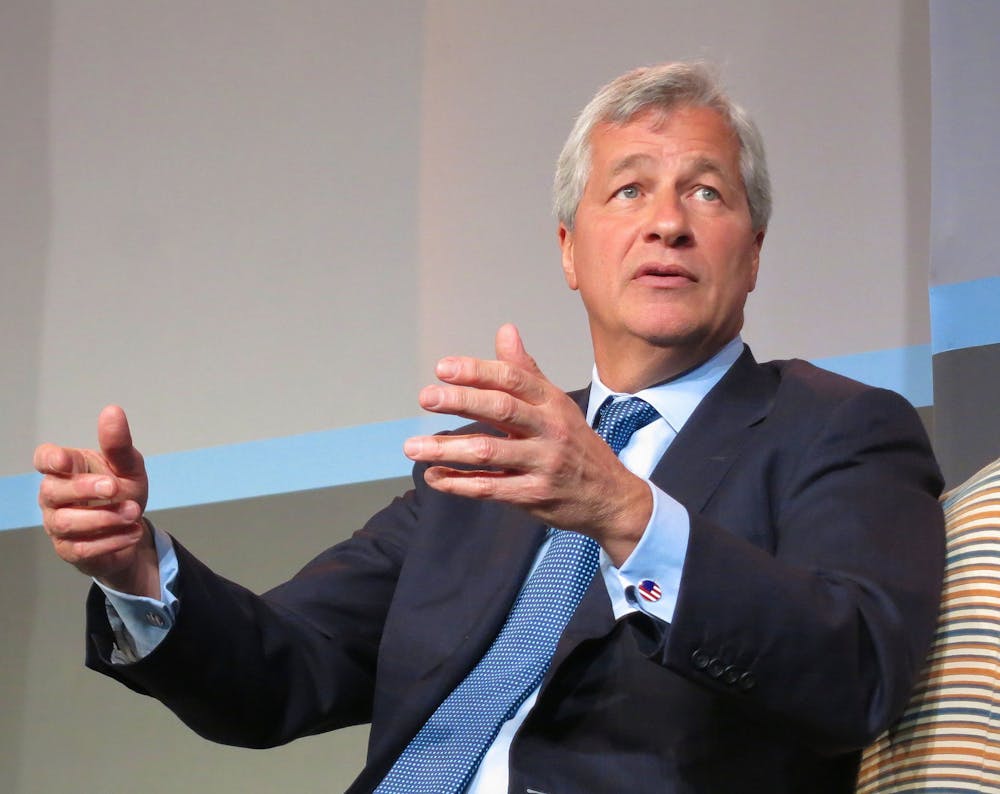We’ve recently seen a lot of news coverage on progressive 2020 Democratic candidates — primarily Sen. Elizabeth Warren, D-Mass., and Sen. Bernie Sanders, I-Vt. — in relation to their tax plans on the ultra-wealthy in American society. Both of these candidates have proposed wealth taxes on individuals with immense fortunes — Warren has proposed a two to three percent tax on net worths starting at $50 million, while Sanders has proposed a one to eight percent tax on net worths starting at $32 million.
Many billionaires in recent months have come out strongly opposed to the concept. CEO of JPMorgan Chase Jamie Dimon believes Warren is “vilifying successful people.” A video of billionaire Leon Cooperman recently went viral when he became emotional on national television while discussing Warren’s tax plans and the future of our country. However, with these objections in mind, it is important that we not let the interests of billionaires cloud our judgement. Wealth in this country is highly concentrated in the top 0.1 percent and until we do something about it, there is no prospect of us achieving any progressive policies.
Firstly, however, it is important to note that the idea Warren or Sanders are unfairly targeting the rich is absurd. Recognizing the vast amount of injustice faced by the impoverished members of our country while the rich continue to hoard massive amounts of wealth to themselves should not be seen as an attack. Rather, Warren and Sanders are recognizing a solution to the problem of wealth inequality.
It’s no secret that wealth in our country is highly concentrated among only a few wealthy individuals — the top one percent of this country holds almost 40 percent of the wealth. And this gap between the rich and the poor has only been increasing in recent years. Huge structural changes — much like what these two candidates are proposing — are needed to fix a system that allows this top one percent to thrive while ignoring the issues of the country’s poor citizens.
The issues that both Warren and Sanders are proposing to fix are immensely important to the future of our nation. Both of these candidates note that the revenue generated from any such tax would be put towards creating programs such as universal child care, Medicare for All and affordable housing. All of these issues deeply affect poorer communities throughout the country. Limited access to child care, for example, is an obstacle preventing many low-income families from achieving greater social mobility, as parents make career sacrifices to care for children. We see this same impediment when poorer communities are crushed by higher education, medical and housing costs. Poor citizens, when dealing with these immense expenses, are not able to save or invest their income, thus further perpetuating this already immense wealth gap. These are issues that, if left unresolved, will result in the further widening of the wealth gap mentioned earlier.
Though these programs come with a huge price tag, the revenue exists to pay for them. Under Warren’s current plan, Bill Gates would pay an estimated amount of slightly over $6 billion in taxes. Given there have been dramatic increases in Gates’ net worth over the years, he should hardly be worried about the future of his fortune. Moreover, I am not worried about how Gates or other wealthy citizens will survive under heavily increased taxation — the wealth taxes proposed by these two candidates do not even start until a person reaches a net worth in the tens of millions of dollars.
Though American society has taught us to believe that personal wealth is dictated by how hard someone has worked, which may spark opposition to wealth taxes, it is objectively not true if we look at mobility rates among the different financial quartiles. It is nearly impossible for children born into the bottom 20 percent to move up the social ladder into the top 20 percent. Unfortunately, the pervasive influence of the American dream causes many individuals to believe that forcing billionaires to pay for these programs is unfair.
Ultimately, we need to reevaluate our concept of fairness in this context. What is really unfair is the incredibly disproportionate amount of wealth in the hands of the top 0.1 percent of this country. What we need to view as unfair is the way this country treats its poor citizens — putting the interests of those with money above the interests of those without. We have, for too long, allowed the ultra-rich to run the country, buying off politicians to make sure they are able to keep their fortunes.
We have reached a point in our history when we have an opportunity to make structural changes that matter and work towards dismantling this large concentration of wealth. We need to forget about the feelings of the wealthy — they will be fine no matter what happens. Let’s focus instead on the poor citizens in our nation and how we can help them.
Zack Pasciak is an Opinion Columnist for The Cavalier Daily. He can be reached at opinion@cavalierdaily.com.






